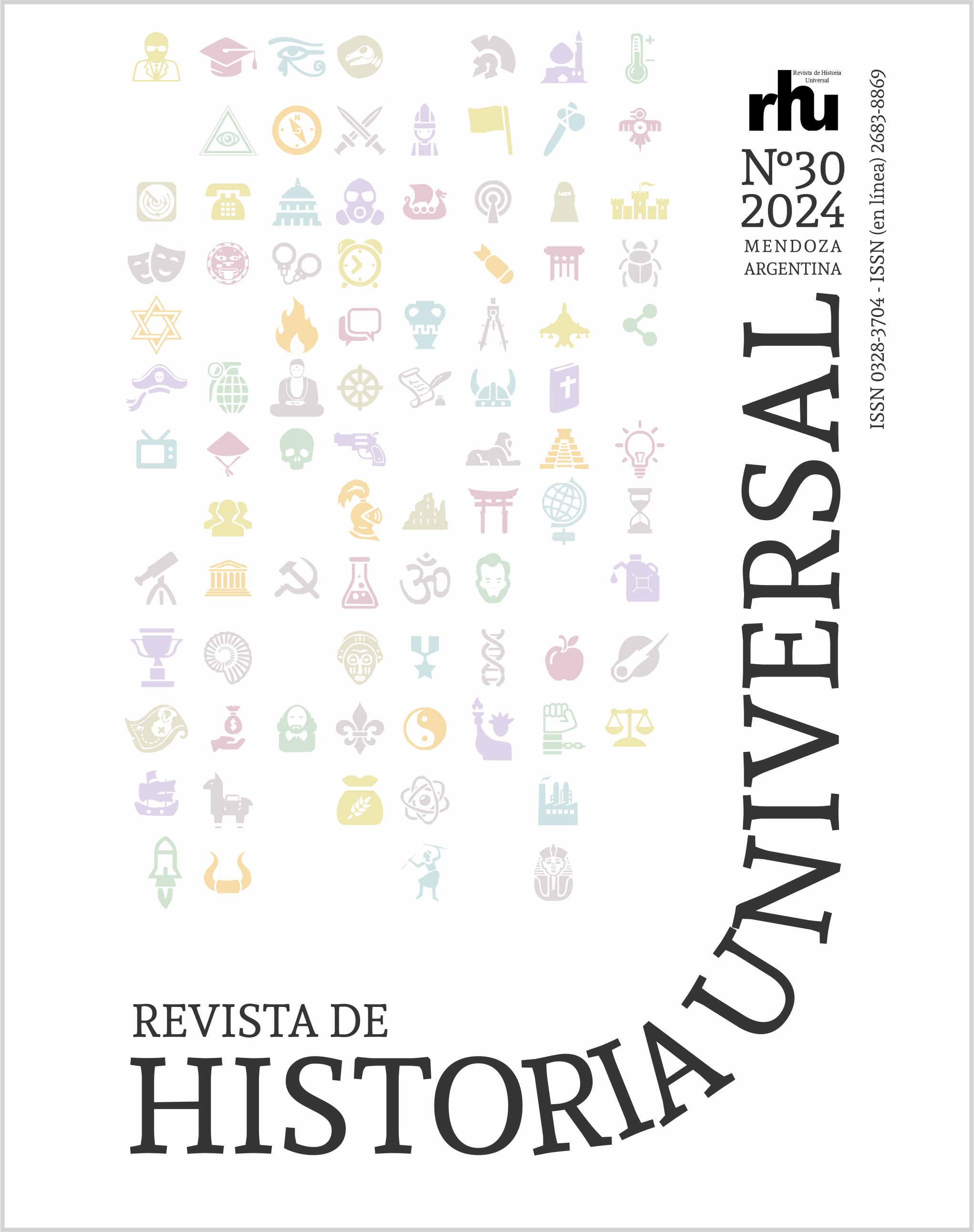Changing views on disability in Greco-Roman antiquity with Christianity: comparing the discourses in Plutarch and the Cappadocian Fathers
Keywords:
Christianity, disability, Plutarch, Cappadocian FathersAbstract
The introduction of Christianity marked a significant shift in the way ancient thinkers viewed people who exhibited some form of physical difference or intellectual difficulty. The article offers a comparison of these two perspectives, illustrated through texts from the 1st-century Greek intellectual Plutarch and the so-called Cappadocian Fathers, 4th-century Christian intellectuals. The traditional Greco-Roman view, which saw disability as a result of divine intervention, usually negative in nature, is gradually replaced by the Christian perspective. This new view holds that people with disabilities are essentially equal to others, possessing intrinsic value due to their belonging to the human family and because of being bearers of the divine image. This understanding will have ethical implications that should be manifested in mutual respect and responsibility, as well as in concrete practices of assistance and care driven by a righteous intention. The ultimate goal will be to restore the original equality that previously existed among human beings.
References
Basilio de Cesarea. (1857a). Homilia dicta tempore famis et siccitatis. En J. P. Migne (Ed.), Patrologiae Cursus Completus: Vol. XXXI (pp. 304-328). Hardvard Divinity School.
Basilio de Cesarea. (1857b). Regulae Fusius Tractatae. En J. P. Migne (Ed.), Patrologiae Cursus Completus: Vol. XXXI (pp. 889-1032). Hardvard Divinity School.
Caspary, A. (2012). The Patristic Era: Early Christian Attitudes toward the Disfigured Outcast. En B. Brock y J. Swinton (Eds.), Disability in the
Christian Tradition. A Reader (epub). William B. Eerdmans Publishing Company.
Diggle, J., Fraser, B. L., James, P., Simkin, O. B., Thompson, A. A. y Westripp, S. J. (Eds.). (2021). The Cambridge Greek Lexicon. Cambridge University Press.
Efthymiadis, S. (2017). The Disabled in the Byzantine Empire. En C. Laes (Ed.), Disability in Antiquity (pp. 388-402). Routledge.
Garland, R. (2012). The Eye of the Beholder. Deformity and Disability in the GrecoRoman World (2a ed.). Bristol Classical Press.
Gregorio de Nisa. (1967). Ιn illud Quatenus uni ex his fecistis mihi fecistis, vulgo De pauperibus amandis oratio II. En A. van Heck (Ed.), Sermones. Pars I (pp. 111-194). E. J. Brill.
Gregorio Nacianceno. (1837a). Oratio LXIII. En J. P. Migne (Ed.), Patrologiae Cursus Completus: Vol. XXXVI (pp. 493-605).
Gregorio Nacianceno. (1837b). Oratio XIV De pauperum amore. En J. P. Migne (Ed.), Patrologiae Cursus Completus: Vol. XXXV (pp. 855-910). Hardvard Divinity School.
Hillgarth, J. N. (1986). Christianity and paganism, 350-750: The conversion of Western Europe. University of Pennsylvania press.
Holman, S. R. (2000). The Entitled Poor: Human Rights Language in the Cappadocians. Pro Ecclesia: A Journal of Catholic and Evangelical
Theology, 9(4), 476-489. https://doi.org/10.1177/106385120000900407
Horn, C. B. (2013). A Nexus of Disability in Ancient Greek Miracle Stories: A Comparison of Accounts of Blindness from the Asklepieion in Epidauros and the Shrine of Thecla in Seleucia. En C. Laes, C. F. Goodey y M. L. Rose (Eds.), Disabilities in Roman antiquity: Disparate bodies, a capite ad calcem (pp. 115-144). Brill.
Hubeñak, F. (1992). Encuentro del Cristianismo con la cultura clásica. Polis: revista de ideas y formas políticas de la Antigüedad, 4, 157-171. https://dialnet.unirioja.es/servlet/articulo?codigo=148794
Hubeñak, F. (1998). El emperador Graciano en el pasaje de la romanidad a la cristiandad. Stylos, 8. https://repositorio.uca.edu.ar/handle/123456789/3153
Kellenberger, E. (2020). Learninig Difficulties: Intellectual Disability in the Ancient Near East, Classical, and Late Antiquity. En C. Laes (Ed.), A Cultural History of Disability in Antiquity (pp. 117-136). Bloomsbury Academic.
Laes, C. (2017). Disabilities in the ancient world—Past, present and future. En C. Laes (Ed.), Disability in Antiquity (pp. 1-20). Routledge.
Laes, C. (2020). How and Whether to Say “Disability” in Latin and Ancient Greek. En C. Laes (Ed.), A Cultural History of Disability in Antiquity (pp. 1-14). Bloomsbury Academic.
Laes, C., Goodey, C. F. y Rose, M. L. (2013). Approaching Disabilities a Capite ad Calcem: Hidden themesin Roman Antiquity. En C. Laes, C. F. Goodey y M. L. Rose (Eds.), Disabilities in Roman antiquity: Disparate bodies, a capite ad calcem (pp. 1-16). Brill.
Momigliano, A. (1989). Introducción. El cristianismo y la decadencia del Imperio Romano. En A. Momigliano, El conflicto entre el paganismo y el cristianismo en el siglo IV (pp. 15-30). Alianza. https://dialnet.unirioja.es/servlet/libro?codigo=9895
Penrose, W. D. (2015). The Discourse of Disability in Ancient Greece. Classical World, 108(4), 499-523. https://doi.org/10.1353/clw.2015.0068
Plutarco. (1985). Licurgo (A. Pérez Jiménez, Trad.). En Vidas paralelas: Vol. I (pp. 273-337). Gredos.
Plutarco. (1986). Banquete de los siete sabios (C. Morales Otal y J. García López, Trads.). En Obras morales y de costumbres (Moralia): Vol. II (pp. 217-279). Gredos.
Plutarco. (1987b). Máximas de mujeres espartanas (M. López Salvá, Trad.). En Obras morales y de costumbres (Moralia): Vol. III (pp. 251-258). Gredos.
Plutarco. (1995). Sobre el entrometimiento (R. M. Aguilar, Trad.). En Obras morales y de costumbres (Moralia): Vol. VII (pp. 287-308). Gredos.
Plutarco. (2007a). Agesilao (J. Bergua Cavero, S. Bueno Morillo y J. M. Guzmán Hermida, Trads.). En Vidas paralelas: Vol. VI (pp. 227-288). redos.
Plutarco. (2007b). Alejandro (J. Bergua Cavero, S. Bueno Morillo y J. M. Guzmán Hermida, Trads.). En Vidas paralelas: Vol. VI (pp. 25-125). Gredos.
Plutarco. (2007c). Cimón (J. Cano Cuenca, D. Hernández de la Fuente, y A. Ledesma, Trads.). En Vidas paralelas: Vol. V (pp. 153-186). Gredos.
Plutarco. (2008a). Pericles (A. Pérez Jiménez, Trad.). En Vidas paralelas: Vol. II (pp. 411-517). Gredos.
Plutarco. (2008b). Solón (A. Pérez Jiménez, Trad.). En Vidas paralelas: Vol. II (pp. 91-171). Gredos.
Plutarco. (2009). Artajerjes (J. P. Sánchez Hernández y M. González González, Trads.). En Vidas paralelas: Vol. VII (pp. 505-551). Gredos.
Saint Basil. (1928). The Letters: Vol. II (R. J. Deferrari, Trad.). William Heinemann.
Samama, E. (2017). The Greek vocabulary of disabilities. En C. Laes (Ed.), Disability in Antiquity (pp. 121-138). Routledge.
Tobon, M. (2022). Disability in the early church. En I. L. E. Ramelli, J. A. McGuckin y P. Ashwin-Siejkowski (Eds.), T&T Clark Handbook of the Early Church (pp. 124-141). T&T Clark.
Downloads
Published
How to Cite
Issue
Section
License

This work is licensed under a Creative Commons Attribution-NonCommercial-ShareAlike 4.0 International License.







